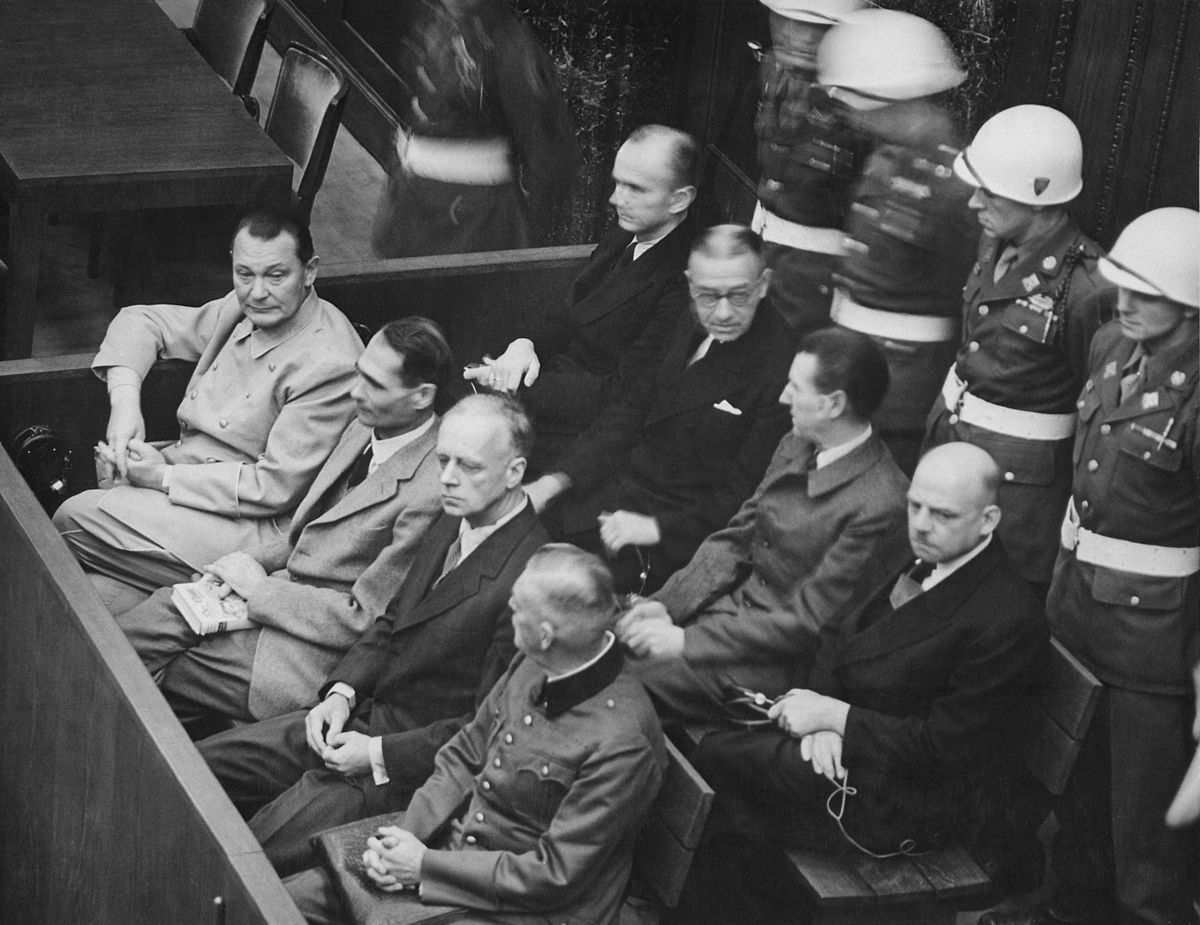FEBRUARY 25, 2021 – After practicing law all day, what did I do yesterday evening? I watched Nuremberg, the 2000 mini-series starring Alec Baldwin. This cinematic experience was the inevitable sequel to my having watched Tokyo Trial. (See my 2/23/21 post.) Despite some historical inaccuracies, Nuremberg provides a reasonably satisfactory overview of the proceedings against Nazi war criminals after WW II. (Bonus points for a string quartet playing in the corner of the room during a Christmas party. The film players were actual musicians. Also, Michael Ironsides was better cast as Col. Andrus in Nuremberg than he was as Gen. MacArthur in Tokyo Trial—I kid you not; he was in both “trials.”)
Although Nuremberg revolves around Robert H. Jackson (Alec Baldwin), the Supreme Court Justice appointed by President Truman to serve as chief prosecutor, the most intriguing characters in the mini-series are former Reichsmarschall Hermann Göring, Nazi architect Albert Speer, and U.S. Army Capt. Gustave Gilbert, a psychologist who interacted with the Nazi prisoners.
The musings and contemplations of these three characters provide insights into the Nazi war on humanity, but the viewer is left with more questions than answers—questions that will persist to the end of (humanity’s) time.
Göring’s corpulence symbolizes his outsized arrogance and sociopathy. The man behind the façade is no better than his unrepenting public persona. What explains much, perhaps, but what’s not depicted on film was his addiction to morphine—first administered after suffering serious wounds as a fighter pilot in WW I. He peaked early—1941—within the Hitlerian hierarchy during WW II. After his beloved Luftwaffe lost the Battle of Britain, his prestige and influence waned. Göring subsequently wallowed in a lavish life-style paid for in large part by stolen Jewish property.
Contrast the Jolly Bad Fellow with Albert Speer, the man of introspection and contrition—if you believe the film and Speer’s own autobiography. Understandably, Speer’s late-in-the-game admission of guilt still meets with skepticism. I believe, however, for the sake of hope in humanity, that we need to give him some benefit of the doubt. Sure, by his expression of regret he avoided the gallows, but I sense that his motive transcended raw survival instincts.
Then there’s Gilbert. Here’s a Jewish-American confronting the ultimate anti-Semites of the age—of any age across history. He makes two timeless observations, each as an aside. First: what defines evil is the absence of empathy. Second: actions have consequences. In response to being informed of the formation of Israel (“A Jewish homeland,” Gilbert is told), he says, “Just one of the lasting effects of what’s happened here.”
Then comes the most bizarre part of the film—and the human condition. After Göring is sentenced to death by hanging, he requests execution by a firing squad. The request is denied. He manages furtive delivery of a cyanide capsule to his cell. Just as he enters the throes of suicide, his panic-stricken guards summon a doctor . . . to keep Göring alive so he can be killed.
Now back to . . . the practice of law.
(Remember to subscribe to this blog and receive notifications of new posts by email.)
© 2021 by Eric Nilsson
